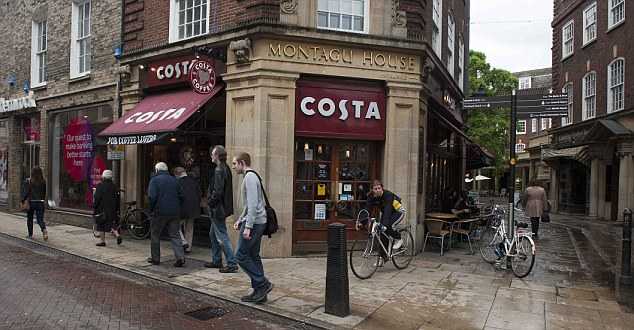The UK’s consumers were less constrained in their leisure spending in the fourth quarter of 2017 compared to the previous year, according to the latest findings from the Leisure Consumer Q4 2017 report by Deloitte.
The quarterly survey of more than 3,000 UK adults found that 2017 ended positively for the leisure sector, with consumer spending increasing in seven out of 11 leisure categories compared to the previous year.
In an indication that consumers are continuing to spend on experience-led activities, short break holidays have seen a two percentage point rise in spending compared to Q4 2016. In addition, going to the gym, drinking in pubs and bars and attending live sporting events also saw spending rise year-on-year, each by one percentage point.
Only three sub-sectors have seen a year-on-year decline in spending, including drinking in coffee shops (down three percentage points) and eating out (down two percentage points), which may have been due to inflationary pressures.
The quarterly view was also positive, with spending increasing in the majority of leisure categories compared to Q3 2017, in line with seasonal expectations.
In-home leisure, including takeaways, video gaming and media subscriptions, increased by eight percentage points from the previous quarter as consumers chose to spend more time at home in the run up to Christmas.
Spending on culture and entertainment, which includes museums, theatre and cinema trips, as well as drinking in pubs and bars, have also seen quarterly increases in spending, up by seven and six percentage points respectively.
Simon Oaten, partner for hospitality and leisure at Deloitte, comments: “These findings paint a positive picture for the leisure sector, which ended 2017 on a high as consumers continued to seek out experience-based activities. The increase in leisure spending comes against a backdrop of various income pressures that have been squeezing consumer pockets in the last year, including rising inflation and slow wage growth.
“In the year ahead, consumers expect their spending on many habitual leisure activities, such as drinking in pubs and eating out, to remain unchanged. In a sign of improved confidence, big-ticket leisure items, such as holidays and theatre trips, are likely to see an increase in spending compared to this time last year.”
Consumers to spend more on discretionary leisure in 2018
When asked about their spending intentions for the first three months of 2018, respondents were broadly optimistic, with six out of 11 sub-categories seeing a positive movement compared to the previous quarter.
Consumers are expecting to spend considerably more on big-ticket leisure activities, including holidays, in the next three months. Spending on long stay holidays is expected to increase by four percentage points compared to last year, with short stay breaks also rising by one point. Spending intentions for the next three months are up year-on-year for culture and entertainment, for doing exercise or attending live sports events as well as betting and gaming.
Oaten adds: “Despite the well-publicised cost pressures facing them, consumers are making considered decisions about their discretionary spending, saving their income with the intention to spend on holidays and other experience-led activities rather than on discretionary retail purchases.
“By contrast, meals out, drinking in pubs and bars or coffee shops as well as leisure at home appear to be so habitual to consumers that they have less intention to scale back on them in the next three months.”
Millennials drive resurgence in leisure spending
According to the survey, consumers aged 18-34 years-old appear to be the most optimistic about leisure spending in the next three months, intending to spend more on leisure in eight out of 11 categories. Consumers in the millennial age group are continuing to spend on habitual activities such as gym and exercise; they are also planning to spend more on expensive experiences, such as holidays or culture and entertainment.
Oaten adds: “Significantly, 18-34-year-old consumers appear to be driving the resurgence in spending in pubs and bars as well as in-home leisure. As the same time, millennials are limiting their spending on eating out and drinking in coffee shops, and as a consequence these categories have seen spending drop-off compared to a year ago.”




















